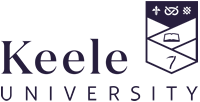About the Project
Automated, movable artificial limbs (prostheses) are now technologically feasible. A limiting factor on the usefulness of these prostheses is the automated control of their movements.
Personalised patient-centred real-time control of upper limb prostheses (e.g. for the fore-arm, upper-arm and hand) that can assist amputee or spinal-cord injury patients is an important area of on-going research both nationally and internationally.
Previous work in Computing & Maths at Keele, has explored how well time-delay neural networks (TDNNs) can be used as part of a control structure for prosthetic limbs for the arm, Blana, Kyriacou, Lambrecht & Chadwick (2016).
So far, the TDNN approach has delivered promising results, but the TDNN architecture does not possess the recurrent time-series processing power already demonstrated in other domains by both Echo-State Networks (ESNs) and deep-learning networks such as Long-Short-term Memory (LSTMs).
The proposed research would exploit existing datasets but would also involve the acquisition of new data to develop/evaluate the NN controllers. The development of improved prosthesis controllers is an active and potentially impactful application domain for the RNN techniques proposed above and the comparative analysis/interpretation of the internal-dynamics of the RNNs will provide new insights likely to be of value to robotics, computer science and computational neuroscience (url:istm-prosthetics-video).
The supervisory team have an established track record (including two successful PhDs) in demonstrating the effectiveness of these innovative RNN architectures and there are reasonable grounds to expect that similar advances could arise from the prosthesis work proposed here.
Research Context: This PhD project will connect with on-going collaborative research activities for example, in healthcare and rehabilitation applications: Chadwick, Blana, Kirsch, & van den Bogert (2014), Blana, Chadwick, van den Bogert, & Murray (2017). Previous grants: EP/M025977/1 (2015), EP/R035091/1(2018). The research will be supervised by Dr Charles Day in the Centre for Computer Science Research at Keele University in collaboration with Dr Fraser Philp from Keele’s School of Allied Health Professions and, potentially, with other national and international project partners.
Applications are welcomed from science, technology, engineering or mathematics graduates with (or anticipating) at least a 2.1 honours degree or equivalent. Applicants should have good computing skills and an enthusiasm for exploiting AI, machine learning and data science techniques in a healthcare setting. They should be self-motivated and have the ability to work both independently and as part of an interdisciplinary team.
This opportunity is open to UK/EU and overseas students. The collaborative and presentation aspects of the research require good English language and communication skills. Overseas applicants would therefore require an English IELTS (or equivalent) of 6.0 overall with no less than 5.5 in any subtest.
Informal enquiries about the project are very welcome by email to the Project Lead, Dr Charles Day ([Email Address Removed]). Full applications should be submitted via: https://www.keele.ac.uk/study/postgraduateresearch/researchareas/computerscience/
Please quote FNS GS 2020-07 on your application.
Keele University is renowned for its exciting approach to higher education and research, beautiful central England campus, strong community spirit and leading levels on student satisfaction. The University has the UK’s largest campus with 617 acres of landscaped parkland, fields, woodlands and lakes. Keele University runs its own day nursery for infants from 3 months to 5 years and is committed to equality and diversity. Information for prospective postgraduate researchers can be found here: http://www.keele.ac.uk/pgresearch/
Keele University values diversity, and is committed to ensuring equality of opportunity. In support of these commitments, Keele University particularly welcomes applications from women and from individuals of black and ethnic minority backgrounds for this post. The School of Computing and Mathematics and Keele University have both been awarded Athena Swan awards and Keele University is a member of the Disability Confident scheme. More information is available on these web pages:
https://www.keele.ac.uk/equalitydiversity/
https://www.keele.ac.uk/athenaswan/
https://www.keele.ac.uk/raceequalitycharter/raceequalitycharter/
Funding Notes
Open to fully self-funded students only. (for example, international students with government or industry sponsorship and UK students with Doctoral Loan funding: https://www.gov.uk/doctoral-loan).
Please note that self-funded applicants must provide funding for both tuition fees and living expenses for the 3 year duration of the research. There is a future possibility of competitive scholarship awards for outstanding applicants (1st class honours), however, none are currently available.
For information regarding University tuition fees please see: http://www.keele.ac.uk/pgresearch/feesandfinance/

 Continue with Facebook
Continue with Facebook

